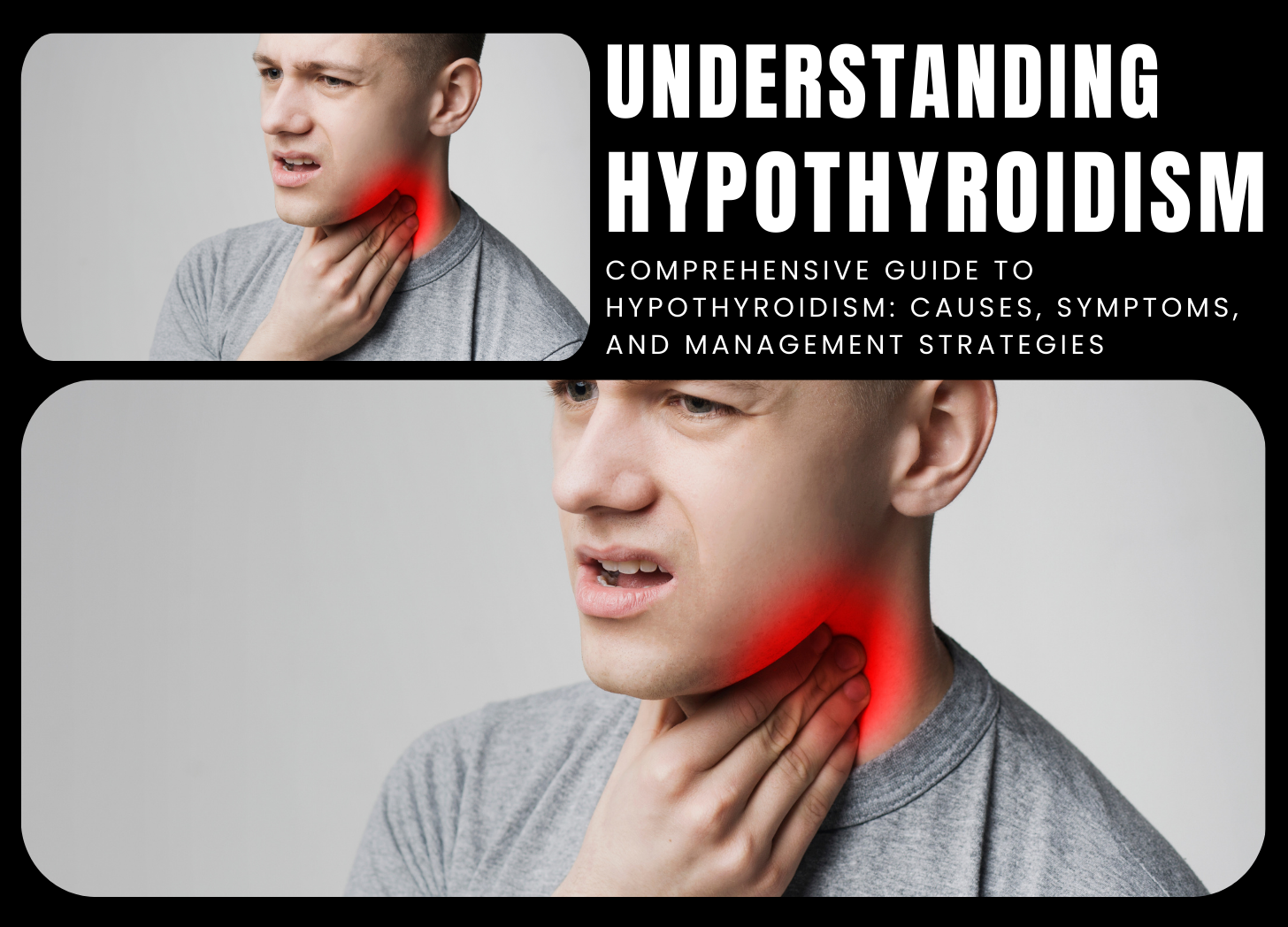Contact Us
Contact Us

Hypothyroidism is a prevalent endocrine disorder characterized by an underactive thyroid gland that produces insufficient thyroid hormones crucial for regulating metabolism, energy levels, body temperature, heart rate, and other vital processes. Low thyroid hormone levels can lead to a diverse array of symptoms and systemic effects affecting multiple organ systems.
The most common cause of hypothyroidism is autoimmune thyroiditis, specifically Hashimoto’s thyroiditis, where the immune system mistakenly attacks the thyroid gland, causing inflammation and impairing hormone production. Other causes include surgical removal of the thyroid gland (thyroidectomy), radiation therapy targeting the neck or chest, certain medications like lithium or amiodarone, iodine deficiency, congenital thyroid abnormalities, and disorders affecting the pituitary gland.
Symptoms of hypothyroidism vary depending on the severity of hormone deficiency and individual factors such as age, gender, and overall health. Typical symptoms in women include fatigue, weight gain, sensitivity to cold, dry skin, hair thinning, constipation, muscle weakness, joint pain, depression, memory problems, and menstrual irregularities. Left untreated, hypothyroidism can progress to myxedema, a rare but serious condition characterized by profound exhaustion, low body temperature, slow heart rate, and impaired mental function.
Diagnosis of hypothyroidism typically involves a combination of medical history review, physical examination, and blood tests to measure thyroid hormone levels. Commonly used blood tests include thyroid-stimulating hormone (TSH), free thyroxine (T4), and occasionally triiodothyronine (T3). Primary hypothyroidism is identified by elevated TSH levels and low T4 levels, while low TSH levels alongside low T4 levels may indicate secondary or central hypothyroidism due to pituitary gland dysfunction.
Treatment for hypothyroidism generally involves lifelong thyroid hormone replacement therapy to normalize hormone levels and alleviate symptoms. The most commonly prescribed medication is levothyroxine, a synthetic form of the T4 hormone taken orally once daily. Dosage is tailored to each individual based on age, weight, and thyroid function, with regular monitoring to adjust medication as necessary.
In addition to medication, lifestyle adjustments such as maintaining a balanced diet, regular exercise, adequate sleep, stress management, and avoiding smoking are crucial to supporting thyroid health and overall well-being. Patients with hypothyroidism should adhere strictly to their prescribed treatment regimen, attend regular follow-up appointments with healthcare providers, and promptly report any changes in symptoms or medication side effects.
In conclusion, hypothyroidism is a common endocrine disorder characterized by inadequate thyroid hormone production. With proper diagnosis, treatment, and lifestyle management, individuals with hypothyroidism can effectively manage their condition and lead healthy, fulfilling lives. Collaboration with healthcare providers and adherence to treatment guidelines are essential for achieving optimal outcomes.
References:
Post a Comment